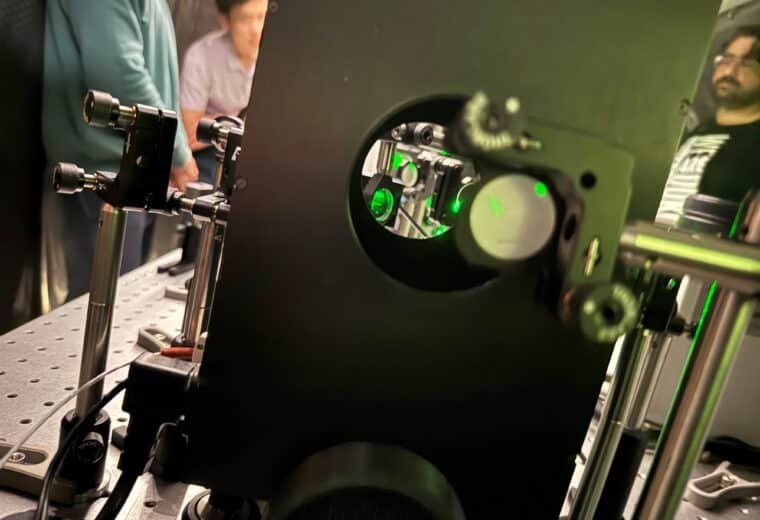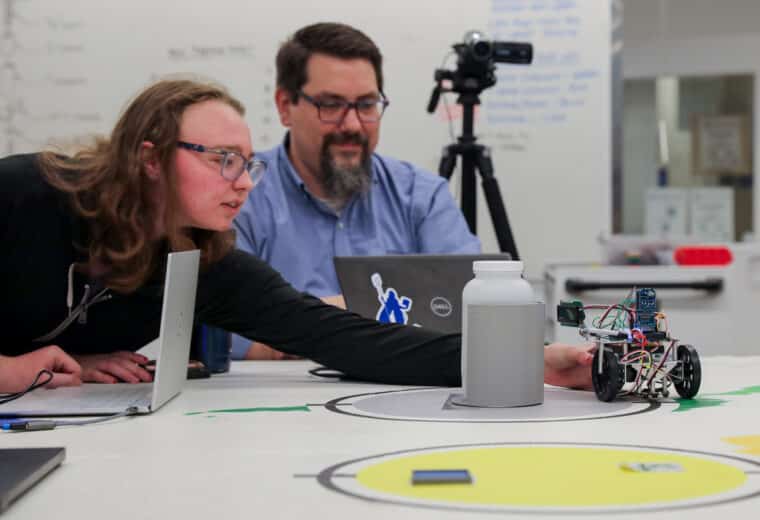
Tying Light from Lasers into Stable “Optical Knots”
Interference patterns between overlapping laser beams could transmit encoded information over thousands of feet through chaotic environments.
We’re sorry—the news story you were looking for has been archived.
Please see the most recent stories below.

Interference patterns between overlapping laser beams could transmit encoded information over thousands of feet through chaotic environments.

Every year, the fundamentals of electrical and computer engineering, a first-year ECE lab, introduces key engineering concepts like sensors, hardware and coding.

Even ancient builders knew how to maximize energy efficiency through rooflines.